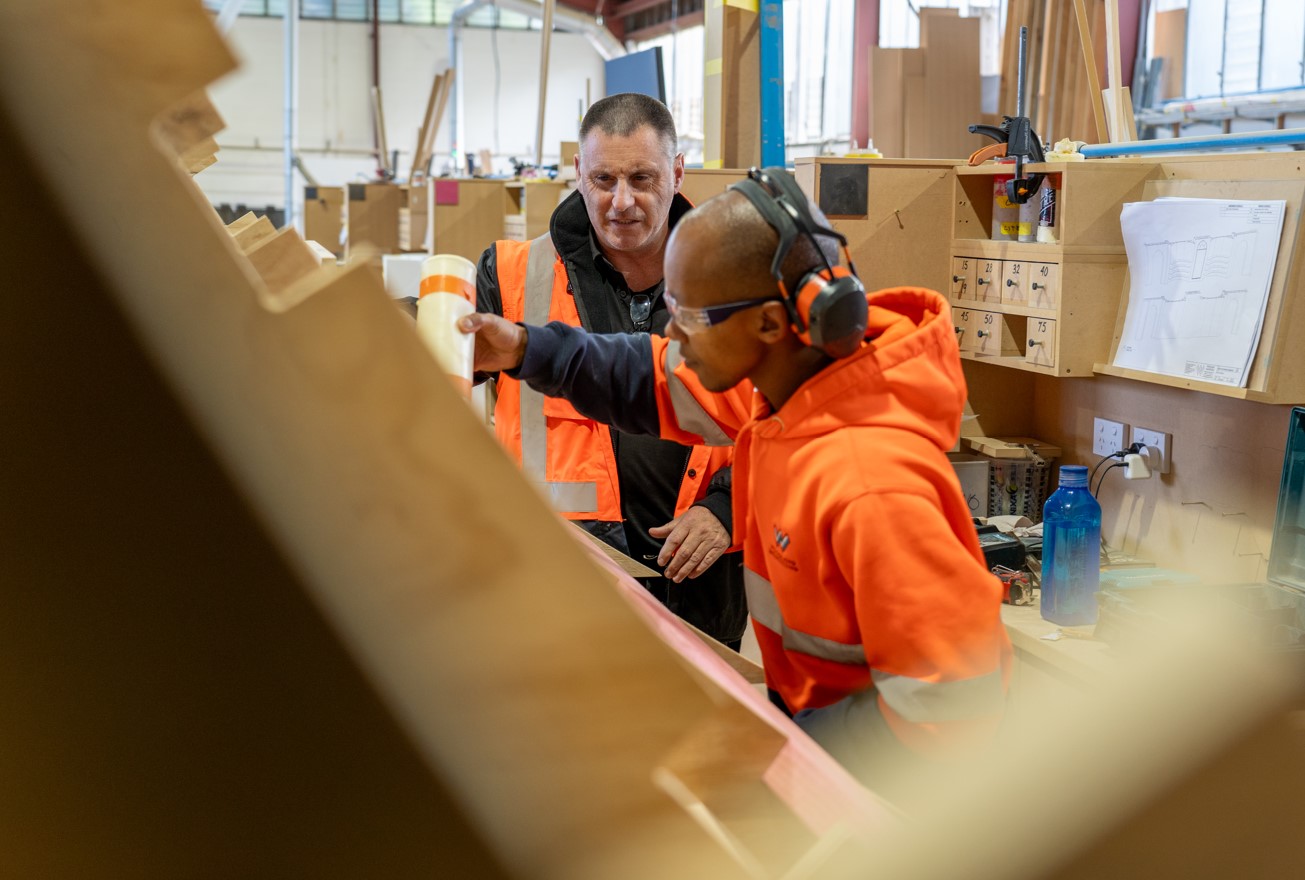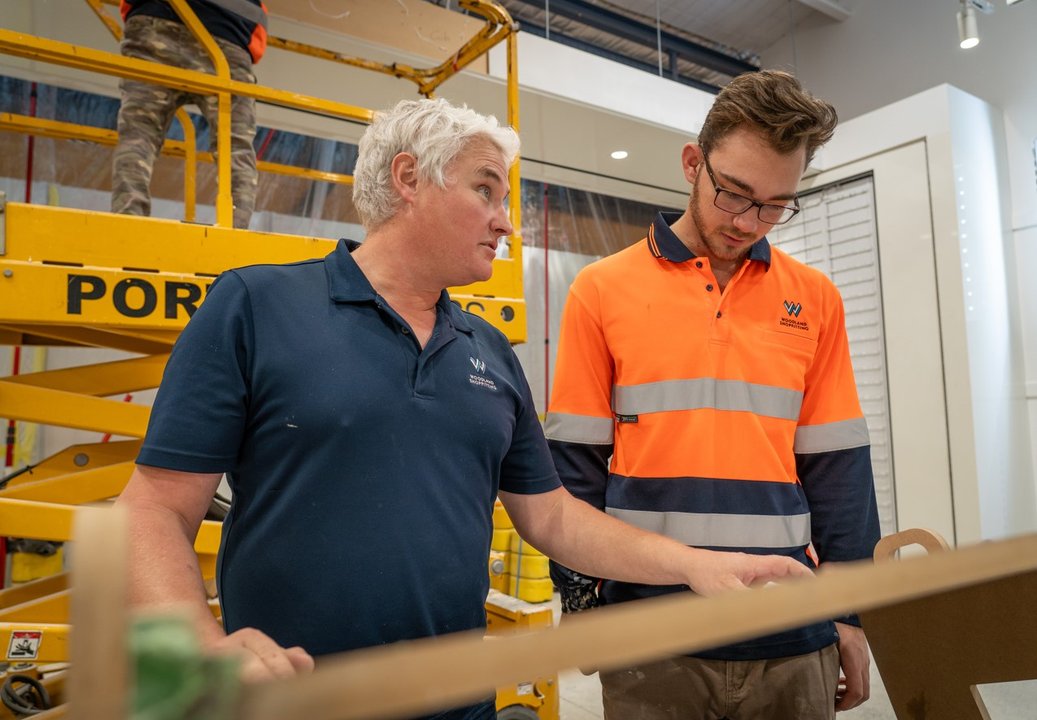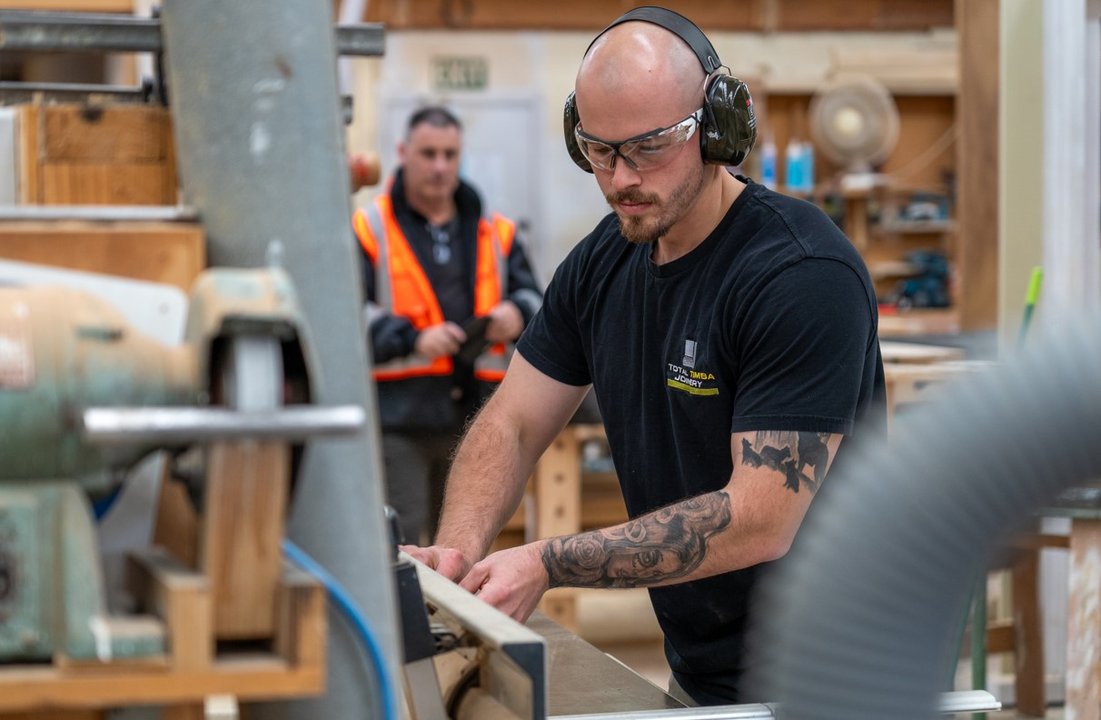
Joinery
Level 4
1st year $1,362-$1984
2nd+ years $964
Joiners use timber in its natural and synthetic form to design and create stunning kitchens, bathrooms, timber windows, doors, and staircases, and other types of cabinetry.

What joiners do?
The manufacturing side of joinery industry involves interpreting specifications and using a combination of craftsmanship and technology to create cabinetry and components to be sent to a site for installation. This usually happens in a factory environment where cabinetry is made bespoke or as ready-to-assemble flat-pack pieces. Manufacturing provides opportunities to work as a component manufacturer, creating the base components of laminates, hinges and handles to be supplied to cabinet makers.
Joiners interpret instructions to ensure everything fits together as a seamless structure and looks good. They achieve the best possible finish using their expertise with tools and fixing materials.

It's not just a job, it's a professional career
Joinery isn't just a job – it's a professional career. By doing an apprenticeship and getting qualified, you're setting yourself up for ongoing employment as a well-paid tradesperson. You’ll also open up opportunities to do further study in supervision or site management, go to university, or start a business and train your own apprentices.
Joinery qualifications
BCITO manages apprenticeships for joinery specialists. In your apprenticeship you will be working towards one of these qualifications:'
You’ll work under an experienced employer who'll provide on-job coaching and support throughout your apprenticeship. You'll also receive the guidance of a BCITO training advisor. Joinery qualifications require that you attend block courses for assessment.
Qualifications may require you to attend block courses for assessment. These come at an additional cost, see pricing here.
There are no strict entry requirements, although it will help if you have good maths and English skills – you need to be able to understand instructions, and work out measurements, quantities and angles.
Micro-credentials
A micro-credential offers you an opportunity to see what a career in the trades could look like. The learning also counts towards an apprenticeship if you continue down that path. They are also great if you are considering a career switch, providing introductory bite sized bits of learning.
A micro-credential can take two to six months to complete. Assessment is undertaken online with a variety of online learning tools. Learners who complete a micro-credential will receive a Te Pūkenga certificate and NZQA credits.
Kitchen Installation
Apprentice Fees
Subject
First Years
Remaining Years
Joinery
choose strand(s)
$1,984
$964
Multiple strands
• Cabinetry
• Doors and Windows
• Stairs
• Bench Top and Specialty Surfaces
No extra cost
Kitchen Joinery
choose strand(s)
$1,362
$964
Multiple strands
- Installation
- Manufacture
no extra cost

